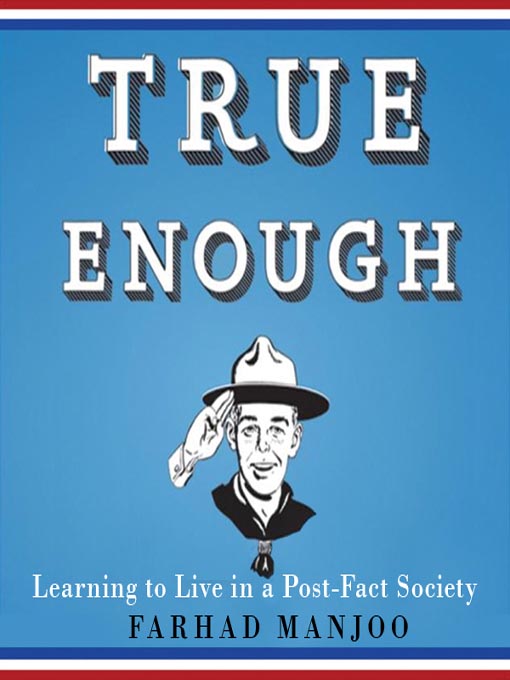
True Enough
Learning to Live in a Post-Fact Society
کتاب های مرتبط
- اطلاعات
- نقد و بررسی
- دیدگاه کاربران
نقد و بررسی

Salon blogger Manjoo dissects how stories in the public consciousness spread, often with little regard to the truth. Through "selective perception," consumers can omit facts while forming opinions. Narrator Ray Porter maintains a respectful, even tone in describing the examples that reflect both sides of the political aisle, from the right's faulty Swift Boat campaign to the left's lack of evidence in support of a stolen election in 2004. Perceptions are analyzed in messages that offer "more theater than truth," and examples include 9/11 conspiracy theories and even a 1951 football game. But the most shocking examples come in the form of biased broadcast television "news reports." Again, Porter's narration never takes sides. Listeners will be alarmed by the influence of "experts on the take" doling out what Manjoo calls "amateur research." M.B. (c) AudioFile 2008, Portland, Maine

January 28, 2008
In 2005, Stephen Colbert catapulted the word “truthiness”—the quality of an idea “feeling” true without any backup evidence—into the public consciousness. Salon blogger Manjoo expands upon this concept in his perceptive analysis of the status of truth in the digital age, critiquing a Rashomon
-like world in which competing versions of truth vie for our attention. Driven by research and study, the book relies on abstract psychological and sociological concepts, such as “selective exposure” and “peripheral processing,” though these are fleshed out with examples from American history, politics and media. For example, Manjoo demonstrates how the Swift Boat Veterans' negative campaign derailed John Kerry's 2004 presidential run. He also points out that the sheer quantity of 9/11 imagery has engendered more conspiracy theories, not fewer—demonstrating, he says, the disjunction between truth and proof. Manjoo rounds out his analysis by examining the workings of “partisan news realities,” and he points out that the first casualty in these truth wars is a basic human and civic need: trust. Though several of the author's ideas are repetitiously threaded through his narrative, Manjoo has produced an engaging, illustrative look at the dangers of living in an oversaturated media world.

























دیدگاه کاربران